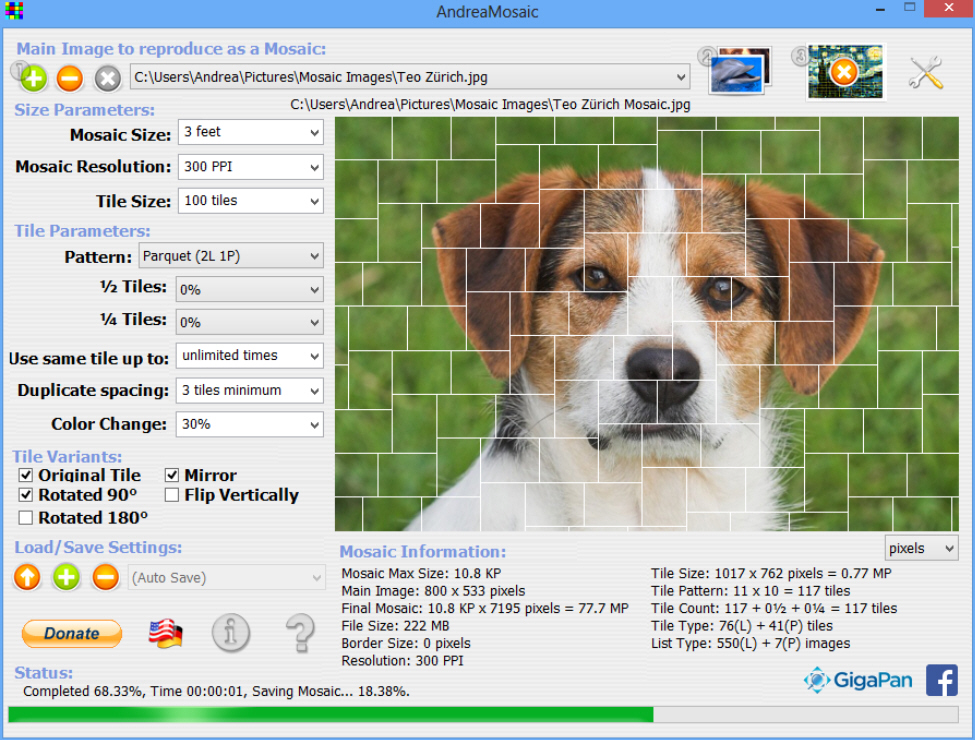AndreaMosaic transforms your photos into hi-res works of art

If you’d like to do something different with your digital photos then most image editors provide at least some artistic effects you can try. They’re not always that interesting, though, and after you’ve tried ten "Oil Painting" filters which don’t produce anything vaguely painting-like, it’s tempting to just give up. But wait: there is another option.
AndreaMosaic is a free tool for creating photo mosaics, pictures which are themselves built up of other images (check the program samples page if you’ve not seen these before). The technique only takes a few minutes to master, but delivers pictures with an appealing, abstracted look, which look great on anything from a Facebook thumbnail to an A3 page (or even larger printed formats).
We’ve linked to the portable version of the program, so it only takes a moment to get started; just launch and unpack it into a convenient folder, then run AndreaMosaic.exe. You’ll be presented with a cluttered dialog, absolutely crammed with configuration options, but don’t be put off. It’s simpler than it seems.
The process begins by clicking the + icon top-left and choosing your source image, the photo you’d like to convert into a mosaic. Start with a picture containing plenty of detail and color variation, as this should deliver the best results.
Next, click the Tile Images icon (the button to the right of the image name). Select "Add Folder" and point AndreaMosaic at one or more folders of pictures which you’d like to use within the mosaic. Alternatively, you can ask the program to extract and use frames from a source video. Either way, click "Save List" > OK when you’re done to return to the main window.
You could now play around with the various mosaic configuration options: size, resolution, the number of tiles, their layout and more. Experimenting with a few Pattern options, say, will give you an idea of the different ways in which your mosaic can be created.
Otherwise, though, just click the Create icon (the button labeled 3, to the right of Tile Images), and wait as the program creates your finished mosaic. Oddly it won’t display this immediately, instead just opening the destination folder, but double-click the JPG and you can take a look. (Be sure to zoom in on the image so you can see the tiny photos making it up.)
This worked well for us, but if you have problems then there’s plenty you can try. Adding more tile images and increasing tile size will improve the quality of the final mosaic, for example. Increasing the "Color Change" figure also gives the program more leeway in adjusting tiles to fit. And of course you can just try different source images, which should help you find out what works, and what doesn’t.
If we could change anything here it would be the interface. It doesn’t highlight what you have to do clearly enough, and the image list approach is far more complicated than it needs to be. You’ll still have the basics figured out in around five minutes, though, so it won’t be a big issue, and on balance AndreaMosaic is an excellent way to transform regular digital photos into real works of art.